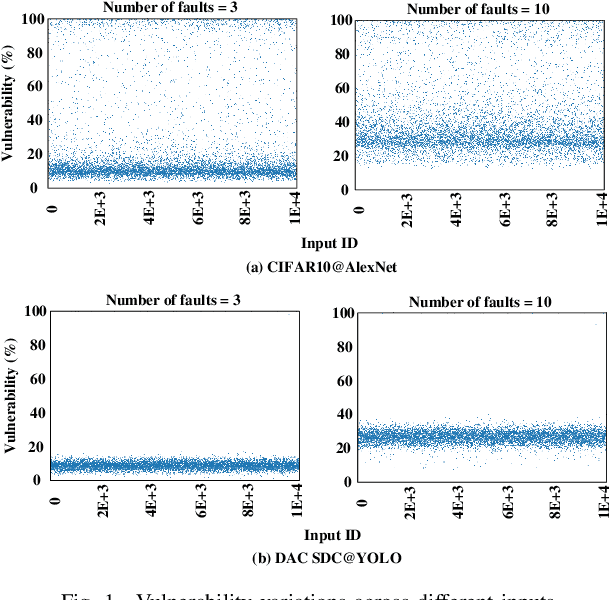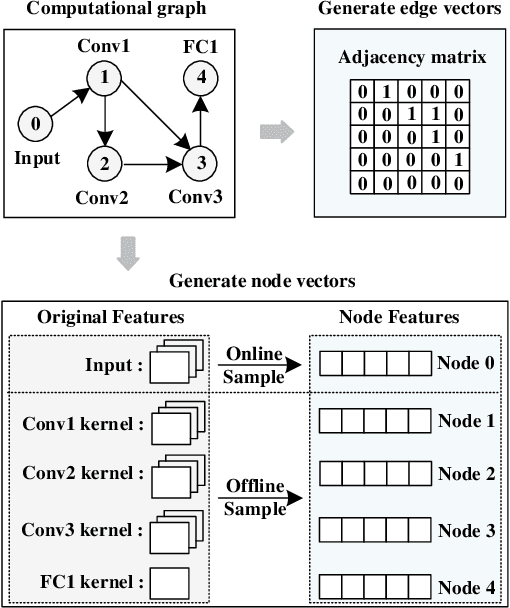Adaptive Soft Error Protection for Deep Learning
Paper and Code
Jul 29, 2024



The rising incidence of soft errors in hardware systems represents a considerable risk to the reliability of deep learning systems and can precipitate severe malfunctions. Although essential, soft error mitigation can impose substantial costs on deep learning systems that are inherently demanding in terms of computation and memory. Previous research has primarily explored variations in vulnerability among different components of computing engines or neural networks, aiming for selective protection to minimize protection overhead. Our approach diverges from these studies by recognizing that the susceptibility of deep learning tasks to soft errors is heavily input-dependent. Notably, some inputs are simpler for deep learning models and inherently exhibit greater tolerance to soft errors. Conversely, more complex inputs are prone to soft error impact. Based on these insights, we introduce an adaptive soft error protection strategy that tailors protection to the computational demands of individual inputs. To implement this strategy, we develop a metric for assessing the complexity of inputs and deploy a lightweight machine learning algorithm to gauge input difficulty. Subsequently, we employ robust protection for challenging inputs and minimal protection for simpler ones. Our experimental evaluation across diverse datasets and deep learning tasks reveals that our adaptive strategy reduces the soft error protection overhead by an average of 46.9%, without compromising system reliability.
 Add to Chrome
Add to Chrome Add to Firefox
Add to Firefox Add to Edge
Add to Edge